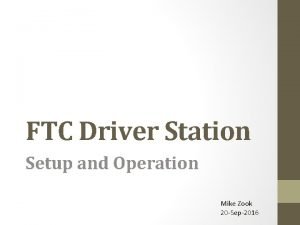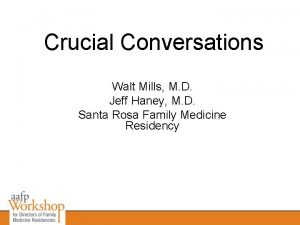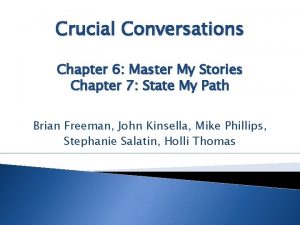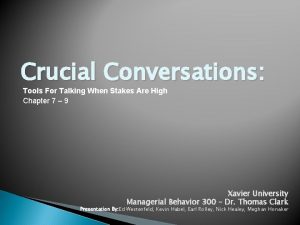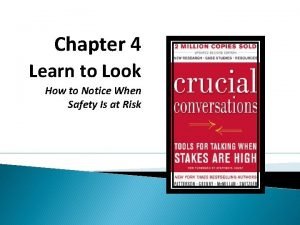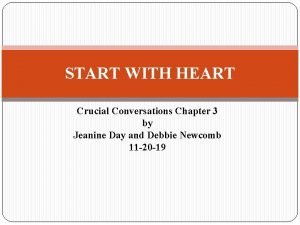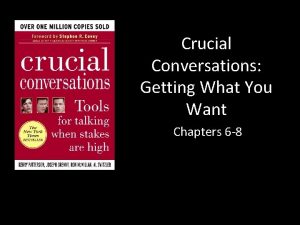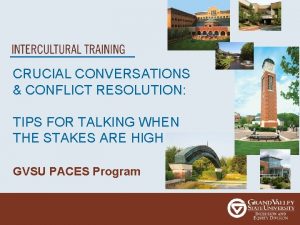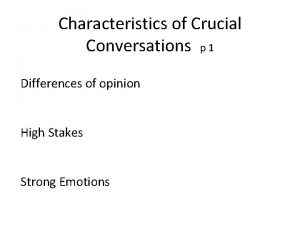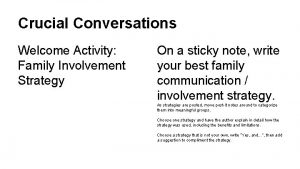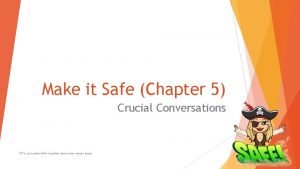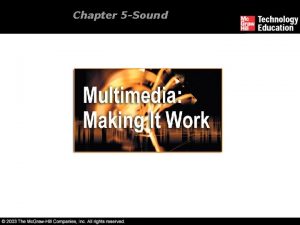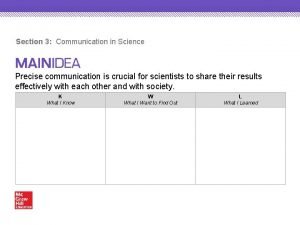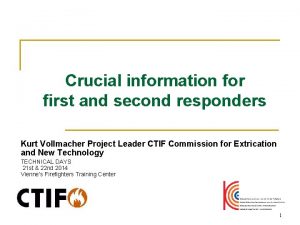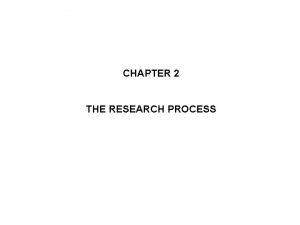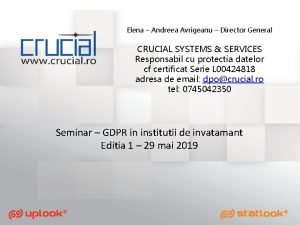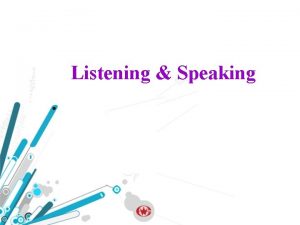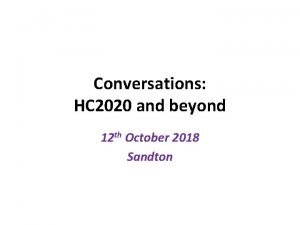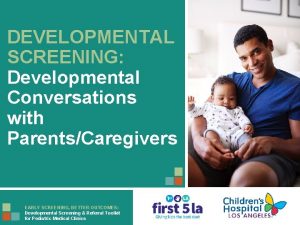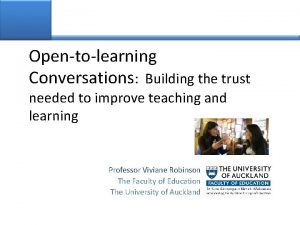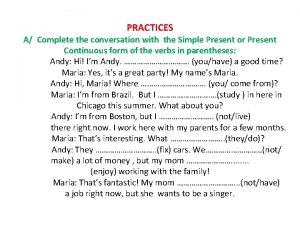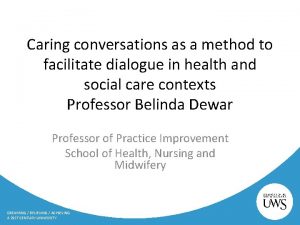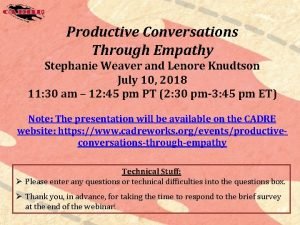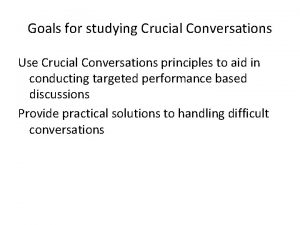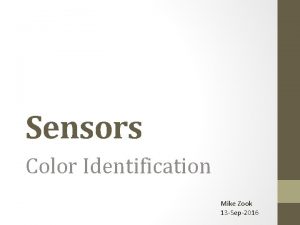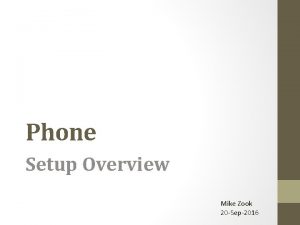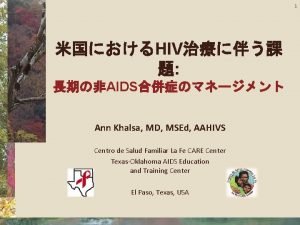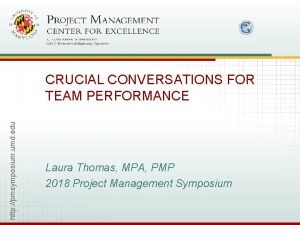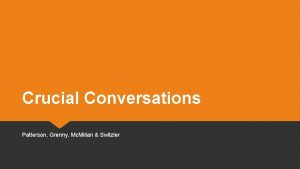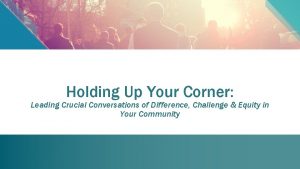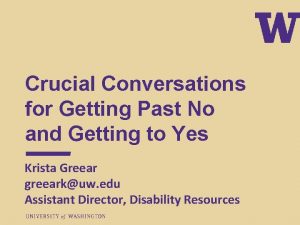Crucial Conversations Melissa Zook MD FAAFP FASAM AAHIVS




































- Slides: 36

Crucial Conversations Melissa Zook, MD FAAFP, FASAM, AAHIVS Family Physician London Women’s Care London, Kentucky “There is no greater agony than bearing an untold story inside you. ” -Zora Neale Hurston


✤ On average, we interrupt our patients just 18 seconds into their story. ✤ If uninterrupted, it takes patients an average of 1 minute and not more than 2. 5 minutes to complete their story.

The Importance of Story…. ✤ It guides the rest of the visit: ✤ The Agenda ✤ Physical Exam ✤ Referrals/Testing ✤ Prescribing ✤ Patient Education ✤ Interval until next visit

Elmer


Paula

The Evidence for gathering stories…. ✤ Primary care physicians who had no malpractice claims: ✤ provided more information to the patient at the visit ✤ allowed patients to express all concerns and tell their story ✤ checked their understanding of patients’ concerns ✤ asked patients what they thought ✤ expressed warmth, friendliness, and humor ✤ Levinson, W, Roter, DL, Mullooly, JP, Dull, VT, and Frankel, RM. Physician-patient communication: the relationship with malpractice claims among primary care physicians and surgeons. JAMA. 1997; 277: 553– 559

The Evidence for gathering stories…. ✤ Three areas that enhance communication between physicians and patients: ✤ Building rapport ✤ Acknowledging social or emotional cues ✤ Up-front agenda setting ✤ Arch Intern Med. 2008 Jul 14; 168(13): 1387 -95. Relationship, communication, and efficiency in the medical encounter: creating a clinical model from a literature review. Mauksch LB 1, Dugdale DC, Dodson S, Epstein R

✤ ✤ ✤ Patients feel their doctor is too busy to listen or fails to address their main complaint Providers are often poorly trained to deal with the administrative demands of practice Providers are consumed by their own agenda ✤ The personalities of certain patients often strain a provider’s skills ✤ Personal, social, and cultural issues often interfere with communication

Rebekah

You Don’t Know Unless You Ask ✤ Fear of death ✤ Fear of mutilation ✤ ✤ ✤ Concerns about loss of wholeness, role, status ✤ Denial ✤ Grief ✤ Fear of loss of independence ✤ Shame Fear of disability Fear of pain Ominous attribution to pain symptoms Distrust of the system

Opening the visit ✤ What brings you in today? ✤ Tell me your story. How did it lead you here today? ✤ How did you find your way to my office? ✤ What’s on your agenda today?

Mirroring, Not Matching ✤ Facilitate: ✤ ―Tell me more ✤ – Attentive listening ✤ – Echo the patient’s last few words ✤ Clarify: ✤ ―Help me understand what you mean by that ✤ ―Let me review what I think I heard you say ✤ ―I’d like to summarize so we can both be sure I have the story straight

✤ ✤ Recognize Patient’s Emotions: ✤ – anger ✤ – fear ✤ – sadness ✤ – anxiety ✤ – uncertainty Respond with ―PEARLS or BATHE

✤ Partnership ✤ ✤ Empathy ✤ “That was tough. You handled it well. ” ✤ “I can see you’ve been struggling. ” Apologize/Acknowledge ✤ Acknowledge patient’s frustrations and anxiety ✤ Take personal responsibility/apologize when appropriate Respect ✤ ✤ “Anyone would be (confused, sad, irritated) by this situation. ” Legitimize ✤ ✤ “Let’s tackle this together. ” “Your reactions/emotions are normal. ” Support ✤ “I’ll be here when/if you need me. ”

BATHE ✤ Background: context ✤ ✤ Affect: emotional state ✤ ✤ What bothers you the most about the issue? Handling: patient’s approach to management ✤ ✤ How do you feel about that? Trouble: isolation of key issues ✤ ✤ What’s going on in your life? How have you been coping with this? Empathy: psychological support ✤ It must be very difficult for you.


Kyle


“Truly, in America, your ZIP code is still more important than your genetic code. ” — Admiral Brett Giroir, Assistant Secretary for Health, U. S. Department of Health and Human Services. orpca. org/initiatives/social-determinants-of-health

Social history ✤ ✤ ✤ ✤ More than tobacco, alcohol and drug use - which are truly medical diagnoses ✤ Do you drive? ✤ Do you have water and electricity? ✤ Do you have any tattoos? ✤ Where have you traveled? ✤ How do your relax or take care of yourself? ✤ What’s the last grade in school you finished? ✤ Do you read well? ✤ Do you have trouble keeping water or electricity in your home? Who lives with you? Do you feel safe at home? What keeps you busy all day? Do you work outside the home? For what do you receive disability? Children? Do they live nearby? ✤ Married, single, partnered, widowed, divorced? ✤ Do you have sex with men, women or both? ✤ Have you ever been to jail or prison? ✤ ADLs/IADLs - who helps you? Who looks in on you? ✤ Have you traveled outside the U. S. ?

Katie

Having a conversation with kids ✤ ✤ ✤ What do you want to be when you grow up? ✤ Do you wear your seatbelt? ✤ Is anyone mean to you? ✤ What’s your favorite thing to play? ✤ What’s your bedtime? ✤ Do you have a best friend? ✤ Are the rules at home fair? Do you get stressed out? Can you swim? ✤ What do you do after school? ✤ What’s your favorite video game and tv show? ✤ really good at? Are the guns in the home locked? ✤ Where do you sleep and who do you sleep with? ✤ What do you worry about the most? ✤ Who lives with you? ✤ What makes you really happy? ✤ Does anyone around you smoke? ✤ Do you have a boyfriend or girlfriend? ✤ What’s something you like about your body? ✤ What are your chores? ✤ What’s something that you’re

Tasha

The Physical Exam…. The Body’s Story. ✤ Another opportunity to listen. ✤ Use all of your senses ✤ Tell me about that ✤ Feet are the window to the soul ✤ Is this new?

John and Roberta

Educating the mind without educating the heart is no education at all. -Aristotle






✤I am not responsible for my patient’s behavior ✤I can’t fix or change anything for them ✤I don’t work harder than my patients are willing to work for themselves ✤I’m ✤I not a social worker do not have a ‘close personal relationship’ with any of my patients

Melissa

 Mike zook
Mike zook Crucial conversations 7 principles
Crucial conversations 7 principles Crucial conversations summary powerpoint
Crucial conversations summary powerpoint State my path
State my path State your path
State your path Crucial conversations chapter 4
Crucial conversations chapter 4 Start with the heart crucial conversations
Start with the heart crucial conversations Cruicial conversation
Cruicial conversation Crucial conversations
Crucial conversations Crucial conversations chapter 6 summary
Crucial conversations chapter 6 summary Difficult conversations role play
Difficult conversations role play What is constructive structure in asl
What is constructive structure in asl Crucialconversations.com/exclusive mutual respect
Crucialconversations.com/exclusive mutual respect Crucial conversations
Crucial conversations State my path crucial conversations
State my path crucial conversations Crucial conversations role play exercises
Crucial conversations role play exercises Difficult conversations ppt
Difficult conversations ppt Crucial aspects of preparing digital audio files
Crucial aspects of preparing digital audio files The detective need more time to inquire about the case
The detective need more time to inquire about the case Section 3 communicating with graphs answer key
Section 3 communicating with graphs answer key Kurt vollmacher
Kurt vollmacher Performance management is crucial to ______.
Performance management is crucial to ______. What processes are crucial to the ipde process
What processes are crucial to the ipde process Crucial systems
Crucial systems Which resources played crucial roles in industrialization?
Which resources played crucial roles in industrialization? Match the conversations
Match the conversations Wayne always obtrudes upon our conversations
Wayne always obtrudes upon our conversations Can we have conversations
Can we have conversations Fierce conversations 7 principles
Fierce conversations 7 principles Cube conversations steve wyborney
Cube conversations steve wyborney Developmental conversations
Developmental conversations Antiracist teaching
Antiracist teaching Viviane robinson open to learning conversations
Viviane robinson open to learning conversations Complete the conversation with verbs from the box
Complete the conversation with verbs from the box Caring conversations framework
Caring conversations framework Productive conversations take real empathy
Productive conversations take real empathy Next steps with academic conversations
Next steps with academic conversations
